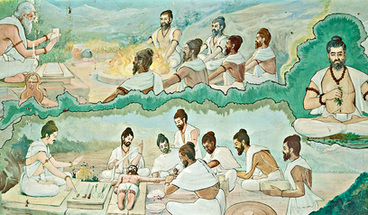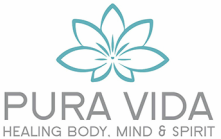What is Ayurveda?

Ayurveda is the oldest complete medical system in the world that originated in India over 3000 years ago. It deals with all aspects of life eg. : full internal medicine, ear , nose and throat , toxicology, pediatrics, surgery, psychiatry & rejuvenation. Ayurvedic medicine is effective for any type of illness, from the common cold to conditions such as psoriasis, arthritis , hypertension, cholesterol , diabetes , asthma, depression , chronic fatigue ,among many others. There are also treatments to prevent the effects of menopause, longevity treatments and cell rejuvenation for a healthier old age. Ayurveda also offers natural beauty treatments to balance the body's skin and face avoiding premature aging. It is now one of the most recognized and widely practiced disciplines of alternative medicine in the world. Ayurveda is recognized by The National Health Institutes/Center for Complementary and Alternative Medicine (NIH)/ NCCAM) as an Alternative Medicine, a complete medical system . It is also recognized by the World Health Organization ( WHO) which has adopted the Ayurvedic definition of health:
|
Sam dosha, samagni, samdhatu malakriyah
Prasannatma, indriyas manah swath abhidayate. – Sushruta stru 24/41 |
Health is in balance when all three doshas (bioenergy) and agni (metabolic process) are in balance, and excretions are in proper order.
When atman (soul), senses, manah (intellect) are in harmony with internal peace, the svastha (optimal health) is achieved. |
The word "Ayurveda" is derived from two Sanskrit words "Ayur" meaning life and "Veda" meaning knowledge. It is an Ancient Indian form of natural, holistic medicine that uses nutrition, herbs, yoga, exercise, mantras, aromatherapy meditation , panchakarma to detoxify the body ,oil treatments and ayurvedic massage to promote good health and well-being.
Ayurveda encourages us to live in harmony with nature and follow a healthy lifestyle. Ayurveda says the universe is made of five elements (panchamahabhutas: space, air, fire, water & earth) and all materials in the universe whether animate or inanimate are composed of the five basic elements and are the foundation for the entire physical world. One of the fundamental principles of Ayurveda is the concepts of macrocosm and microcosm. As the human body is similarly constituted as the Universe, there is a fundamental harmony between the Universe and man, a healthy balance between the microcosm and macrocosm. According to Ayurveda, an individual’s constitution (prakruti) is recorded at the time of conception much the same as genetic code . This constitution is determined by three ‘doshas’: Vata, Pitta and Kapha which are made up of the five elements:
Vata- Space + Air
Pitta- Fire + Water
Kapha- Water + Earth
Each person is made up of all three doshas, Vata, Pitta and Kapha, however the proportions and dominance of doshas varies from person to person.
Ayurveda is a very simple system of healing based on the natural healing powers of the body, keeping it in balance or bringing it back into balance based on our unique natural constitution. What is unique about Ayurveda is that the recommendations about diet and lifestyle are different for each person based on the innate constitution of the person and it studies the body, mind and emotions of the person to diagnose diseases , addressing the root cause not just the symptoms of a disease.
One of the scientific principles of Ayurveda is' like increases like" and the opposite brings balance. Our bio-energies or doshas Vata, Pitta, Kapha increase and decrease during different times of the day, season and time of life. Unnatural imbalances of the doshas can be caused by such things as diet, lifestyle, trauma viruses, parasites, etc. Imbalances can lead to the accumulation of toxins in the cells and tissues which then can then cause illness. Toxins may be produced through improper digestion as well as those absorbed into the body from the environment. While some things are beyond our control , the type of lifestyle we live and the foods we eat are within our control. When the doshas are balanced, we are healthy and when imbalances occur is when disease sets in. An Ayurvedic lifestyle and proper nutrition based on our innate constitution will bring our bodies back into balance and keep our bodies healthy. Once we understand our unique constitution, following recommended dietary intakes and daily and seaosnal routines that complement our personal doshic constitution ,we only need to make a small investment in ourselves in order to make a big difference that can nullify , minimize and eliminate the causes of imbalance. While most modern medical treatments treat at symptomatic level, Ayurveda treats a person at the root of the problem rather than simply addressing the symptoms. By understanding your own unique nature or constitution through knowledge learned from Ayurveda you can begin to make choices that improve and maintain optimal health and well-being.
Ayurvedic Nutrition & Lifestyle
Ayurveda embraces the healing of all aspects of our being (body, mind, and consciousness) through diet, lifestyle (including exercise, yoga, Ayurvedic massage and meditation), Ayurvedic herbs and herbal preparations, as well as Ayurvedic cleansing and rejuvenating programmes and therapies. A balanced Ayurvedic lifestyle takes into consideration regularity in food, sleeping habits and bowel movements, as well as following daily routines and practices such as yoga and meditation that will help maintain the harmony of the doshas; promoting overall good health.
To learn more and set up your ayurveda consultation or nutritional counseling session, click here.
